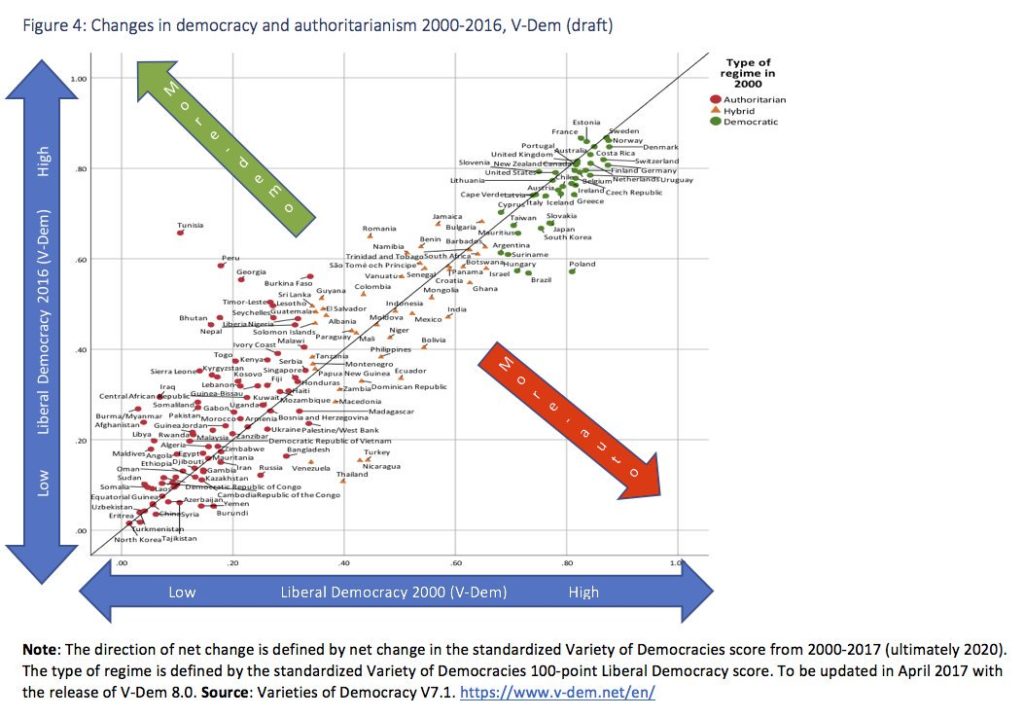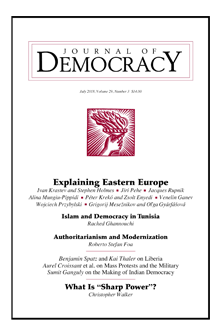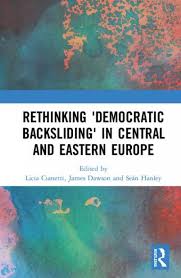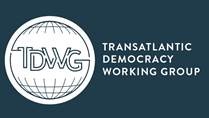
Democracy is facing major challenges, yet suggestions of a global crisis of widespread or systemic backsliding are not warranted, according to data from the largest democracy database ever compiled. The Varieties of Democracy Project (V-Dem) found that the number of democracies worldwide declined only slightly from 100 in 2011 to 97 today, and 16 countries transitioned to democracy over the last ten years, including Tunisia, Nepal, and Nigeria. However, there is a fair degree of volatility, the researchers wrote in a recent article for the Journal of Democracy. In 2013 alone, five countries transitioned to democracy but nine went the other way. Worrisome trends include gradual erosion of freedom of expression and association in several countries, among them Turkey, Hungary, Poland, and Brazil.
Nevertheless….
 Democracies around the world are under stress, their institutions and norms undermined by illiberal actors, and their vulnerabilities exploited by external forces bent on weakening democracy’s appeal. Prominent illustrations include Hungary and Poland’s illiberal turns, Turkey’s descent into authoritarianism, and foreign electoral interference in states across the transatlantic community, Brookings suggests.
Democracies around the world are under stress, their institutions and norms undermined by illiberal actors, and their vulnerabilities exploited by external forces bent on weakening democracy’s appeal. Prominent illustrations include Hungary and Poland’s illiberal turns, Turkey’s descent into authoritarianism, and foreign electoral interference in states across the transatlantic community, Brookings suggests.
These democratic setbacks—both attention-grabbing and more subtle—have emerged in both transitioning and consolidated democracies. Across Europe, nationalist and populist parties have gained support among citizens who see their governments as unable to meet their economic and security needs, nor adequately address concerns associated with migration and globalization. In the most difficult cases, illiberal governments are weakening the rule of law, the separation of powers and the integrity of elections.
 Democratic backsliding (meaning the state-led debilitation or elimination of the political institutions sustaining an existing democracy) has changed dramatically since the Cold War. Open-ended coups d’état, executive coups, and blatant election-day vote fraud are declining while promissory coups, executive aggrandizement and strategic electoral manipulation and harassment are increasing, analyst Nancy Bermeo observed.
Democratic backsliding (meaning the state-led debilitation or elimination of the political institutions sustaining an existing democracy) has changed dramatically since the Cold War. Open-ended coups d’état, executive coups, and blatant election-day vote fraud are declining while promissory coups, executive aggrandizement and strategic electoral manipulation and harassment are increasing, analyst Nancy Bermeo observed.
Contemporary forms of backsliding are especially vexing because they are legitimated by the very institutions democracy promoters prioritize but, overall, backsliding today reflects democracy’s advance and not its retreat. The current mix of backsliding is more easily reversible than the past mix and successor dictatorships are shorter-lived and less authoritarian, she wrote for the JOD.
 Understanding democratic deterioration in Central and Eastern Europe requires viewing developments through the prism of a range of cases beyond Hungary and Poland, according to the editors of a recent book. Rethinking ‘Democratic Backsliding’ in Central and Eastern Europe considers the ‘backsliding’ debate through the experience of CEE states such as the Czech Republic, Bulgaria, Latvia, and Estonia; as well as neighboring regions such as the Western Balkans and former Soviet Union. Contributors examine the role of kleptocracy and wealth concentration; trade-offs between democratic quality and democratic stability; and the interplay between social movements, state-building, and democratization.
Understanding democratic deterioration in Central and Eastern Europe requires viewing developments through the prism of a range of cases beyond Hungary and Poland, according to the editors of a recent book. Rethinking ‘Democratic Backsliding’ in Central and Eastern Europe considers the ‘backsliding’ debate through the experience of CEE states such as the Czech Republic, Bulgaria, Latvia, and Estonia; as well as neighboring regions such as the Western Balkans and former Soviet Union. Contributors examine the role of kleptocracy and wealth concentration; trade-offs between democratic quality and democratic stability; and the interplay between social movements, state-building, and democratization.
Payback playbook

CSIS
Observers have often claimed that the democratic downturn is due, to some degree at least, to a repertoire of political engineering, a playbook or handbook employed by autocrats, dictators, the Kremlin, ‘illiberal democrats’ or other forces intent on undermining democratic institutions. According to Resisting Ill Democracies in Europe, a recent playbook produced by several European civil society groups, sick democracies show some or all of the following symptoms:
- Using a majority in parliament to introduce constitutional changes and legislation, and governing based on a “tyranny of the majority.”
 Targeting the independence of the judiciary and institutions of independent oversight through functional and structural changes.
Targeting the independence of the judiciary and institutions of independent oversight through functional and structural changes.
- Capturing of institutions through massive dismissals and the placement of “loyals” in key strategic positions to ensure their submission to the ruling government.
- Use of financial tools against democratic institutions and independent organisations, such as through budget cuts, cutting off from financial sources, and taxation.
- Shrinking of the democratic space, in particular through laws and policies curtailing freedom of expression, association, and assembly, and aimed at quelling opportunities for dissent.
- Publicly discrediting and slandering dissenting voices and using libel laws against them.
- Appropriating and manipulating historical narratives shaping the public discourse.
- Promoting “traditional values” and “national interests” in the name of majorities, and to the detriment of women, minorities, and vulnerable groups, with a discourse that plays on fear.
Well, now it’s time for a payback playbook.
 On November 5, the Governance Studies and Foreign Policy programs at Brookings will host a release event for “The Democracy Playbook”, a new report by Brookings experts Norman Eisen, Torrey Taussig, and Alina Polyakova, and the Transatlantic Democracy Working Group’s Susan Corke. The authors will appear on a panel to describe their findings, based upon an extensive review of social science and practitioner experience, and to discuss strategies that supporters of liberal democracy can implement to halt and reverse democratic backsliding and make democratic institutions work more effectively for citizens, with a particular focus on the European experience.
On November 5, the Governance Studies and Foreign Policy programs at Brookings will host a release event for “The Democracy Playbook”, a new report by Brookings experts Norman Eisen, Torrey Taussig, and Alina Polyakova, and the Transatlantic Democracy Working Group’s Susan Corke. The authors will appear on a panel to describe their findings, based upon an extensive review of social science and practitioner experience, and to discuss strategies that supporters of liberal democracy can implement to halt and reverse democratic backsliding and make democratic institutions work more effectively for citizens, with a particular focus on the European experience.
‘The Democracy Playbook’: A strategic plan to fight democratic backsliding. RSVP
Tuesday, November 5, 2019, 9:30 – 10:45 a.m. EST. The Brookings Institution, Falk Auditorium, 1775 Massachusetts Ave, NW, Washington, DC. After the session, speakers will take audience questions. This event will be webcast live. Join the conversation on Twitter at #DemocracyPlaybook.







